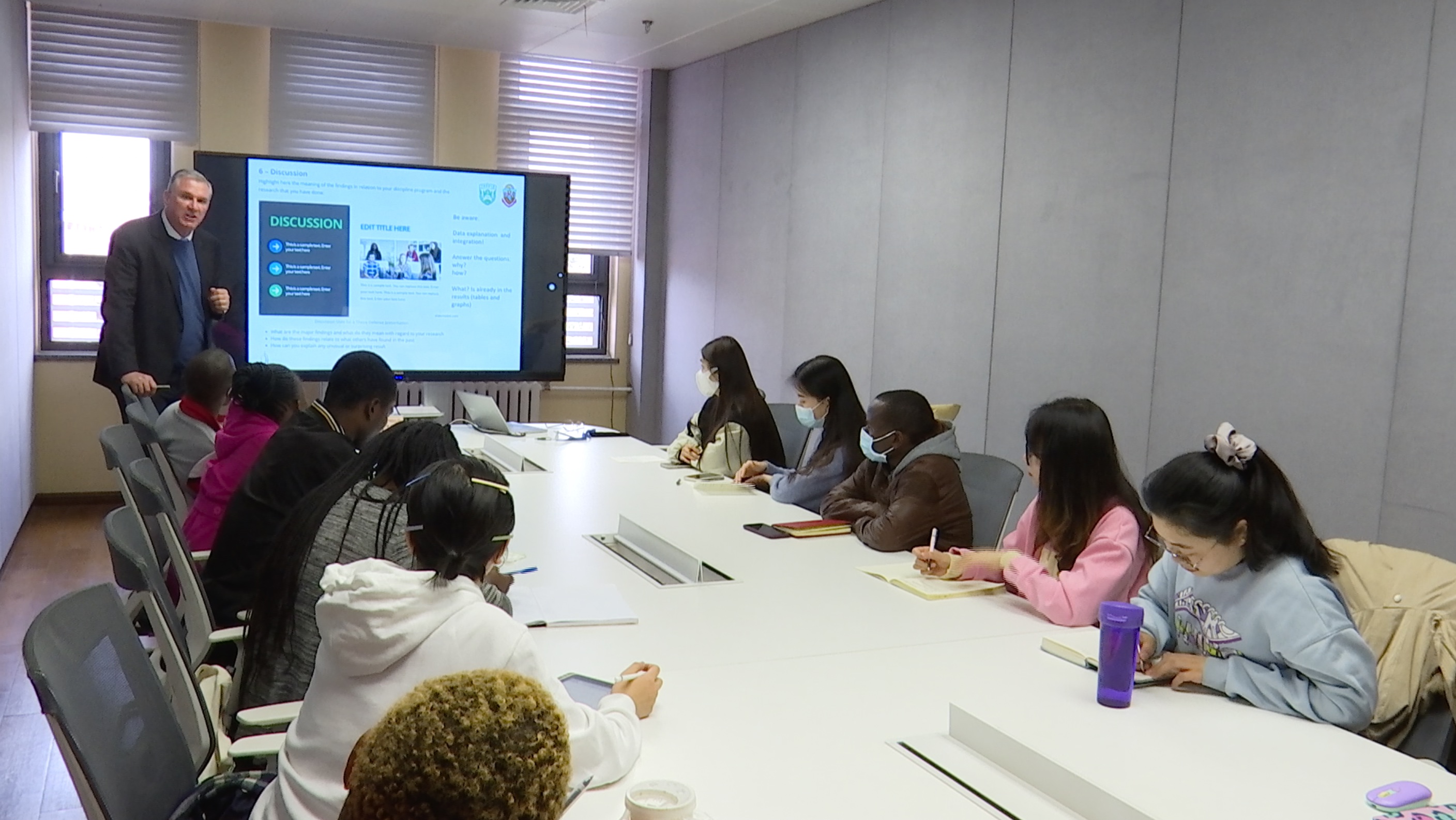To get MBBS admission in China from Pakistan, apply to recognized universities, meet eligibility criteria, and secure a student visa.
Table of Contents
Eligibility Criteria
Academic Qualifications
- Students must have completed their Higher Secondary School Certification (HSSC) or its equivalent.
- A minimum of 60% marks in HSSC is generally required.
- Mandatory subjects include Biology, Chemistry, and Physics in the senior year.
Language Proficiency Requirements
- Many MBBS programs in China are conducted in English.
- Some universities may require Mandarin proficiency.
- The Hanyu Shuiping Kaoshi (HSK) test might be necessary for certain universities
Age Limit
- Applicants are generally expected to be between 17 to 25 years of age.
- Age criteria might differ based on the specific university.
Choosing the Right University
Recognized Chinese Medical Universities
| University Name | Location | Notable Programs |
|---|---|---|
| Peking University Health Science Center | Beijing | MBBS, Medicine Research |
| Fudan University | Shanghai | MBBS, Clinical Medicine |
| Zhejiang University | Hangzhou | MBBS, Biomedical Sciences |
| Sichuan University | Chengdu | MBBS, Pharmacy |
| Sun Yat-sen University | Guangzhou | MBBS, Nursing |
| Wuhan University | Wuhan | MBBS, Medical Imaging |
| Shanghai Jiao Tong University | Shanghai | MBBS, Dentistry |
| Jilin University | Changchun | MBBS, Traditional Chinese Medicine |
| Xiamen University | Xiamen | MBBS, Health Management |
| Capital Medical University | Beijing | MBBS, Rehabilitation Medicine |
Fee Structure Comparison
- When evaluating universities, consider both tuition and other associated costs.
- Tuition for MBBS programs in China can range from $2,500 to $10,000 per year, depending on the institution and city.
- Some universities offer scholarships or financial aid, which can significantly reduce costs. Check each university’s scholarship page for details.
- Keep in mind the cost of living in various cities. For instance, living in Beijing might be more expensive than smaller cities.
- Additional costs might include health insurance, textbooks, and administrative fees.
Campus Life and Facilities
- Research the campus environment, student-to-faculty ratio, and available extracurricular activities.
- Investigate the availability of modern research labs, libraries, and medical equipment for hands-on training.
- Consider universities with affiliated hospitals for better internship opportunities.
- Some universities might have a more international student community, which can offer diverse perspectives and enhance the learning experience.
- It’s essential to consider accommodation options. Some universities provide dormitories, while in others, students might need to find off-campus housing.
- Look for universities that support international students with orientation programs, language courses, and counseling services.
- Getting insights from current students or alumni can be invaluable.
Admission Process
Steps to Apply
- Begin with researching and selecting a list of preferred medical universities in China.
- Visit the official websites of these universities to understand the specific application process.
- Register and fill out the online application form provided by the university or through the centralized application platform used by some Chinese institutions.
- Pay the application fee, which is typically non-refundable.
- Submit all the required documents (more on this in the next section).
- Once accepted, the university will send an admission letter and a JW202 form, which is necessary for the visa application.
- Apply for a Chinese student visa at the nearest Chinese consulate or embassy.
- After getting the visa, inform the university about your arrival plans and prepare for your journey.
- Upon arrival in China, complete the university registration process and attend the orientation.
Documents Required
- Academic transcripts and certificates from the last attended institution.
- High school diploma or its equivalent.
- A copy of your passport.
- Passport-sized photographs.
- Language proficiency certificate (like IELTS, TOEFL, or HSK, depending on the medium of instruction).
- Statement of purpose or a personal statement.
- Recommendation letters (usually two, from previous educators or professionals).
- Physical examination form or medical check-up report, which is mandatory for a student visa.
- Proof of financial capability or a sponsor’s financial guarantee.
- Non-criminal record certificate.
Application Deadlines
- Chinese universities usually have two intakes: Spring (starting in March) and Autumn (starting in September).
- The primary intake for MBBS programs is generally in Autumn.
- Application periods usually open several months in advance. For Autumn intake, the application period might be from February to June.

Register to Free Apply Scholarship ,WhatsApp:
+86 15066822096
Language and Medium of Instruction
Importance of Mandarin in China
- Mandarin, also known as Putonghua, is the official language of China and is spoken by the majority of its population.
- While many MBBS courses are taught in English, having Mandarin proficiency can be beneficial in clinical settings where interaction with local patients is required.
- Mandarin is also essential for daily life interactions, such as shopping, commuting, or socializing outside the campus.
- Learning Mandarin can provide students with a cultural immersion experience, allowing them to understand Chinese customs, traditions, and medical practices more deeply.
- Universities often offer Mandarin courses for international students to help them acclimate.
MBBS Courses in English
- A significant number of Chinese medical universities offer MBBS programs entirely in English, catering to the growing number of international students.
- These English-medium courses ensure that students don’t face language barriers in their academic learning.
- Curriculum in English-medium MBBS courses is designed to meet international standards, often based on the US, UK, or Australian medical education systems.
- However, students might still have Mandarin classes as part of their curriculum to help them communicate effectively during their clinical rotations in local hospitals.
- Before enrolling, ensure that the university is recognized by the Medical Council of your home country.
Financial Considerations
Tuition Fees
- Tuition fees for MBBS programs in China can vary significantly based on the university’s prestige, location, and facilities.
- On average, tuition fees range from $2,500 to $10,000 per year.
- Additional costs include registration fees, lab fees, and other miscellaneous charges.
- Some top-tier universities might have higher fees due to advanced facilities and global recognition.
Living Costs in China
- The cost of living varies based on the city. Metropolitan areas like Beijing, Shanghai, and Guangzhou tend to be more expensive than smaller cities or rural areas.
- On average, monthly living expenses, including accommodation, food, transportation, and utilities, might range from $300 to $1,000.
- University dormitories are often cheaper than renting apartments outside. However, living off-campus can provide more privacy and flexibility.
- Transportation is relatively affordable, with options like buses, subways, and bicycles widely available.

Scholarships and Financial Aids
- Many Chinese universities offer scholarships for international students to promote diversity on campus.
- Scholarships can range from partial tuition waivers to full scholarships covering both tuition and living expenses.
- The Chinese government also provides scholarships for international students through the China Scholarship Council.
- Eligibility criteria for scholarships can include academic achievements, leadership qualities, and extracurricular involvements.
- Some scholarships might require separate applications, while others automatically consider all admitted students.
Medical Licensing and Recognition
China Medical Council Regulations
- In China, the China Medical Council (CMC) oversees medical education, licensure, and practice.
- To practice medicine in China after completing an MBBS, students must pass the National Medical Licensing Examination (NMLE). This exam tests both clinical knowledge and practical skills.
- The NMLE is typically in Mandarin, highlighting the importance of understanding the language even for those studying in English-medium programs.
- For more details on regulations and licensure in China, you might refer to the official CMC website or Wikipedia.
Recognition of Chinese MBBS Degree in Pakistan
- Pakistan Medical Commission (PMC) is responsible for recognizing foreign medical degrees in Pakistan.
- Most MBBS degrees from China are recognized by the PMC, provided the university is listed in the World Directory of Medical Schools.
- However, returning doctors must clear the National Licensing Examination (NLE) of Pakistan to practice medicine in Pakistan.
- It’s advisable to ensure your chosen Chinese university’s recognition by PMC before enrolling to avoid future complications.
Post-graduation Opportunities
- After obtaining an MBBS degree from China, graduates have multiple avenues. They can pursue postgraduate studies in China, return to Pakistan, or explore opportunities in other countries.
- Those aiming for post-graduation in China might need to consider exams like the Medical Master/Ph.D. Admission Test.
- China has been increasing its postgraduate medical courses in English, offering more opportunities for international students.
- Another avenue is pursuing a residency or specialized training in other countries, such as the US or UK, though this often requires clearing specific licensing exams like USMLE or PLAB.
- Graduates can also delve into medical research, hospital administration, or public health roles either in China, Pakistan, or globally.

Preparing for the Move
Visa Application Process
- After receiving the admission letter and the JW202 form from the university, you can apply for a Chinese student visa (X1 or X2 visa) at the nearest Chinese embassy or consulate.
- The X1 visa is for students who plan to study for more than 180 days, while the X2 visa is for short-term studies lasting less than 180 days.
- Required documents typically include a valid passport, a recent passport-sized photo, the original and a copy of the admission letter, the original and a copy of the JW202 form, and a completed visa application form.
- Some consulates might request additional documents or an in-person interview.
- After entering China, X1 visa holders need to apply for a Temporary Residence Permit within 30 days.
Health Check-ups and Vaccinations
- Before moving to China, you’ll often need to undergo a medical examination and provide the report during the visa application or university registration.
- The specific health check-up form is usually provided by the university or can be downloaded from the embassy’s website.
- Common tests include blood tests, chest x-rays, and an ECG, among others.
- It’s also wise to get vaccinated for diseases prevalent in China, such as Hepatitis A and B, Typhoid, and Rabies.
- Consult with a travel clinic or your healthcare provider for up-to-date health recommendations before traveling.
Cultural Adaptation and Tips
- Chinese culture, with its rich history and traditions, can be different from what you’re used to in Pakistan.
- Learn basic Mandarin phrases for everyday interactions, as this will make your daily life more manageable and help you connect with locals.
- Respect local customs and etiquettes, like not sticking chopsticks upright in a bowl of rice or understanding the significance of numbers in Chinese culture.
- Be prepared for a different teaching style in universities. Active participation and building a rapport with professors can be beneficial.
- Engage with local students and join university clubs or groups to immerse yourself in the culture and make friends.
What's the average tuition fee for MBBS in China?
The average tuition fee ranges from $2,500 to $10,000 per year.
How long is the MBBS program in China?
The MBBS program in China typically lasts for 6 years.
What are the living costs for students in China?
Monthly living expenses in China can range from $300 to $1,000.
Is Mandarin proficiency required for the course?
While many MBBS courses are in English, Mandarin proficiency is beneficial for clinical rotations.
What is the visa application process for Pakistani students?
After securing admission, students should apply for an X1 or X2 visa at the Chinese embassy with relevant documents.
Is the Chinese MBBS degree recognized in Pakistan?
Most MBBS degrees from China are recognized by the Pakistan Medical Commission, but a licensing exam is required.
How can I adapt to Chinese culture quickly?
Engaging with local students, joining university clubs, and learning basic Mandarin can help in cultural adaptation.
What is the cost of health check-ups and vaccinations for China?
Health check-up costs vary, but vaccinations like Hepatitis A and B can cost around $50 to $100 each.


